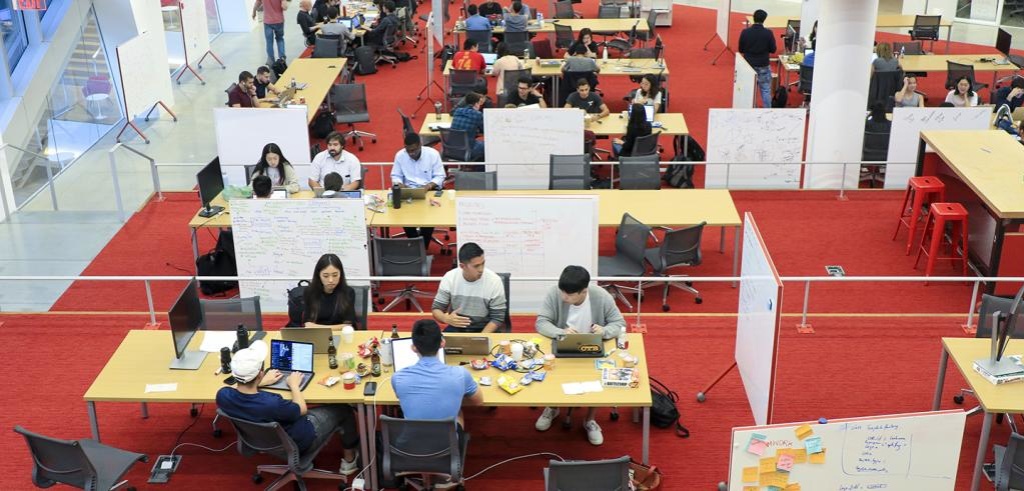“Design is inherently interdisciplinary,” J. Meejin Yoon, Gale and Ira Drukier Dean of Cornell Architecture Art Planning (AAP) school, told the department’s blog last month. In that spirit, Cornell AAP and Cornell Tech have announced a collaborative, cross-disciplinary program for digital design solutions. The partnership includes the new M.S. Matter Design Computation (MDC) program for graduate students and undergraduate architecture students at AAP NYC, along with Cornell Tech students in computer science, business, engineering, law, and health technology. The school has already hosted classes such as Design Topic Research Studio: Matter Design Computation; Special Topics in Visual Representation: Coding for Design; and Product Studio.
Faculty across various disciplines lead the classes and students are encouraged to create new digital design product solutions in response to prompts from both their teachers and companies. “Our undergraduate and graduate students bring an ability to synthesize a set of complex relationships, form a plan, and follow through in a meaningful way,” said Jenny Sabin, Cornell’s Arthur L. and Isabel B. Wiesenberger Professor in Architecture and associate dean for design initiatives. “It’s not only about problem-solving but problem generating.” And those problems are increasingly complex—Yoon added: “At a moment when the challenges facing the built environment and society are multiscalar, complex, and dynamic, the collaborative initiatives between AAP and Cornell Tech will give our students opportunities to engage in pressing questions across technology, human-centered design, and the built environment with an expanded perspective on the design challenges facing society today.”
Andrea Simitch, the Stephen H. Weiss Presidential Fellow and architecture department chair describes the program as a natural extension for architectural learning. “Architecture pedagogy is by default a collaborative practice based on interactive dialogues,” she told Cornell AAP’s blog. The hope is that students will learn to collaborate, think beyond siloed disciplines, and get an education in delivering functional, well-executed projects.
